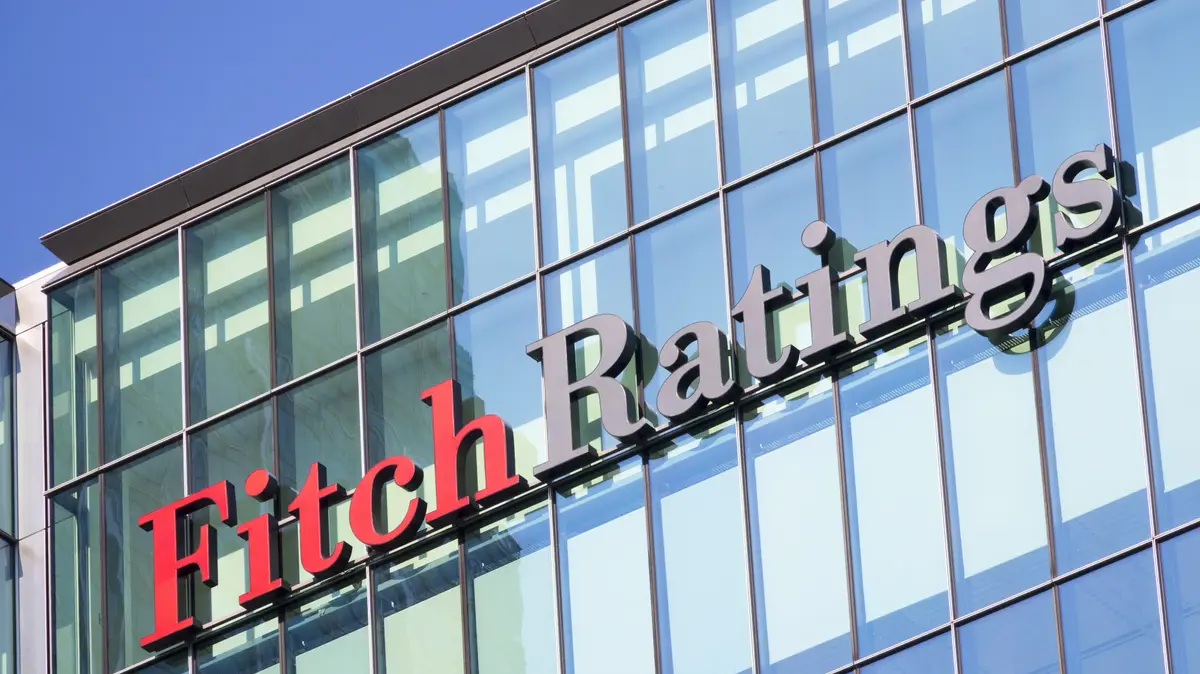The legal reform: the rating agency warns of its consequences as well as the possibility of harming the independence of the Bank of Israel (Photo: Reuven Castro)
The Ministry of Finance breathed a sigh of relief, after it became known that the rating company Fitch reconfirmed the credit rating of the State of Israel at level A+ and left the rating forecast at 'stable'.
However, those who peruse the entire report discover several points that should prevent sleep from the eyes of those in charge of Israel's economy.
The company's announcement states that Israel's A+ credit rating balances a diversified and robust economy with high added value and strong external financial indicators and a high government debt-to-GDP ratio. Increased security risks and political instability that hinders the implementation of the policy.
The economy is in a good position to prepare for a slowdown: Fitch expects that Israel's GDP growth will remain robust at a rate of 2.9% in 2023, after 6.4% in 2022, despite the global upheaval and the tightening of monetary policy that will affect private consumption and investments. Growth will be based on the continued growth of exports in the high sector -Tech and in the defense industry, strong population growth, and after the passage of the budget, an increase in government spending. The company expects growth to return to the long-term potential, above 3%, in 2024 and 2025. Increase in inflation: The company expects inflation to reach its peak in the first quarter of the year and gradually stabilize to
about 3% until the end of the year. The slowdown will be based on the soft landing of the Israeli economy, with the cooling of the high-tech sector that led to a strong increase in private sector wages. Also, the company expects that the rise in housing prices will moderate in light of the inventions of the variable interest component in mortgages and a high rate of apartment construction. To banks in Israel Sufficient capital is in place and they are in a good position to absorb an increase in the non-performing loan (NPL) ratio.
The governor, Amir Yaron - the rating company did not miss the attempt to narrow his steps (photo: photo processing, Flash 90, Yonatan Zindel)
A few points of concern
However, the rating agency also raises several points of concern:
The containment of the pressure on economic policy: The company notes that some members of the Knesset and the government have proposed to reduce the independence of the central bank and limit the increase in interest rates on mortgages.
So far, the Prime Minister and the Minister of Finance have opposed these efforts.
According to the company, this is not the base scenario, but the weakening of the central bank's independence will lower the credibility of the policymakers in Israel, which is currently a strong point in the credit rating.
Return to budget deficits: According to the company, Israel will operate with a technical budget with limited monthly spending until the coalition government consisting of the Likud and mainly religious parties passes a budget, most likely in the second quarter of 2023. The company expects an increase in the government deficit of about 1.8% of GDP in 2023 , so that the deficit will be 1.2% (the target in the draft government budget is 1%), and a further increase in 2024 to 2.5%.
This is against the background of an expected moderate increase in state revenues, due to the decline of supporting factors in 2022 (capital gains, taxation of real estate transactions), and an increase in government expenditures resulting from coalition agreements and investment in infrastructure. An increase in expenditures may also be caused in light of the wage agreements in the public sector, when "M on salary after several years in which it was frozen.
The company notes that this forecast has risks as the budget still needs to pass the Knesset and additional commitments have been made to the electorate and there are risks on the revenue side.
Beyond the current budget proposal, the authorities are expected to continue with a policy of higher subsidies that favor groups with low employment rates at the expense of a balanced budget given the avoidance of raising taxes.
The legal reform may weaken the credit profile: the company refers to the proposed reform and claims that the government prioritizes the promotion of the legal reform that will reduce the powers of the Supreme Court and give more power to the coalition in the Knesset on matters of legislation and the appointment of judges, with the stated goal of increasing the efficiency of the government's activities and reducing the burden on the judicial system .
The reform met with strong civil and political opposition.
While the exact content of the reform is still subject to negotiation, the company believes that the reform may have a negative impact on Israel's credit profile by weakening the government's indicators or if the weakening of balances and institutional brakes lead to worse policy outcomes or persistent negative investor sentiment.
According to the company, some of the countries that passed major institutional reforms that reduced institutional checks and balances saw a significant weakening of the World Bank's Governance Indicators (WBGI), the most influential indicators in the company's sovereign rating model, and in some cases resulted in a one-step reduction in the model's rating scale. the company, when the effect lasted for several years.
At this stage it is not clear whether the reforms proposed in Israel will have an impact on a similar scale.
Geopolitical risks remain: the company states in its announcement that Israel's credit rating is limited in light of geopolitical risks, but at the same time the credit profile has shown resilience in the face of periodic conflicts.
The lack of an agreement on Iran's nuclear program and the continued Iranian progress towards obtaining nuclear weapons, alongside clear US support for Iran's military deterrence from obtaining nuclear weapons, may increase the risk of an escalation of the long-term conflict, although the company considers this scenario to have a significant impact on the rating as an extreme risk only.
The weakened Palestinian Authority lost its security grip on large cities and as a response Israel was required to deepen military activity in the region, with a high number of wounded in some cases.
Israel's moves to legalize settlements, allow the construction of new ones and apply civilian jurisdiction in the West Bank could increase tensions.
The clashes between Israelis and Palestinians in May 2021, and then with Arabs inside Israel highlighted serious fault lines.
There remains a risk of another conflict with Hezbollah, although there has not been a large-scale conflict since 2006, in which both sides will suffer casualties and when Lebanon is in the midst of an internal crisis.
Along with the worrying points, there are some strong points in the comments section:
Debt on a downward trend: The company expects the GDP debt ratio to continue its downward trend to a rate of 57.9% by 2024, from 61.6% in 2022 and 68.9% in 2021 (according to Bank of Israel data), against a background of strong nominal growth and limited deficits.
Israel maintains a strong financing capacity which is reflected in the high demand for government bonds from local investors. The premium over US bonds increased moderately in the last issuance, and the bonds of the Bonds organization remain active and the political climate is not expected to increase financing costs. Structural expansion of the budget deficit may cause an upward trend in debt.
Strong external balance sheet: The announcement states that Israel's reliance on domestic gas production provides some insulation from rising global commodity prices and demand for its export products remains strong.
The company expects a current account surplus of 3.6% in 2023, largely unchanged from 2022, but much stronger than the median of A-rated countries of 1.2% in 2023. Large net external debt payments of approximately $12 billion and continued investment abroad on by institutional investors led to a moderate decrease in foreign exchange reserves in 2022.
The company's expectation is that foreign exchange reserves will decrease moderately in 2023 to the level of 12 months of current account payments, but will remain well above the median of 3.1 months in reference countries for 2022 Israel's position as a net lender to the world at a level of about 52% of GDP (median: -2.8%) is a significant strength in the credit rating.
According to the company, a positive rating action may occur if there is a prolonged reduction in the ratio of government debt to GDP to a level close to that of AA-rated countries.
It is also possible to take positive action in a situation where the political and security risks will be significantly reduced.
On the other hand, a negative rating action may happen if there is a permanent increase in the ratio of government debt to GDP.
A negative action may occur if risks materialize that will cause a lasting and serious impact on the economy and the fiscal framework, as well as if institutional resilience is harmed as a result of a reform that will weaken the legal system and lead to a lowering of the WBGI indices or a negative impact on the economic and fiscal indices.
More in Walla!
Strategic location, spectacular view and luxurious apartments: the intriguing neighborhood being built in the center
In collaboration with Aora Real Estate
The Minister of Finance, Betzlala Smotrich - chose to see mainly the good parts and on the way hurried to market the budget (Photo: Roni Kanfo)
The Minister of Finance, Bezalel Smotrich, was quick to celebrate: "Israel's economy is strong and with God's help it will remain so. Last week, the government approved an excellent, responsible, restrained and growth- and infrastructure-oriented budget, and despite rising global inflation, we are succeeding in fortifying the State of Israel as an island of stability, a growing economy and a place Excellent for investment.
The credit ratings prove that we are taking all the right steps to move the State of Israel forward."
Of money
news
Tags
Credit Rating
Bezalel Smotrich
Bank of Israel
budget deficit















